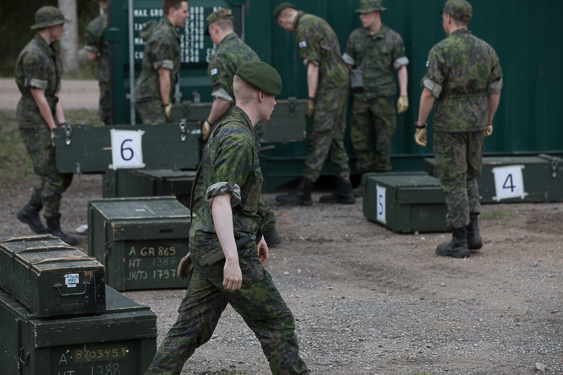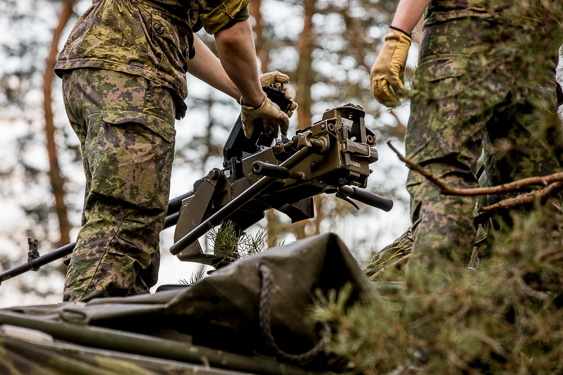International training also involves logistics training to a large extent
Resupply of meals, munitions, and shipments presupposes thorough planning
International training as part of its daily procedures, the Finnish Defence Forces arranges for and participates in international training exercises on a regular basis a number of times a year both in Finland and abroad. Apart from offering training opportunities for the participating exercise troops, the planning and training abroad facilitate developing the planning processes involved as well. In fact, as regards participating in international training exercises and providing and receiving international assistance, logistics’ preparations form one of the focal points of training.

In respect of the training exercise Siil 2018 organised in Estonia, the planning concerning logistics’ preparations has been initiated already a year in advance by planning the concentrating of troops and equipment as well as the resupplying of catering rations and overall maintenance.
Altogether 14 nations contribute troops for participation in the training exercise Siil 2018 in Estonia. Pori Brigade’s training exercise unit’s logistics planner, Captain Jaakko Mussaari says that when making logistics’ preparations for participation in an international training exercise, two entities in particular have a tendency to become more pronounced than their counterparts in national training exercises.
- The most significant differences amount to preparing for the concentrating of troops. For the most part, in training exercises conducted in areas neighbouring Finland, troop concentration will involve transportation by ship or aircraft. Moreover, issues related to personnel, hazmat, and vehicles, among others, must be well planned for and this information distributed in detail in order to secure the entry into the given country and allow for a timely start of the training exercise. Arranging for permits and notifications tends to take its time as well.
- Another major entity in need of attention translates into specifying the relevant support needs and then requesting these support needs from the host nation. The support needs are presented to the host nation on a standardized Nato form that covers the requested support needs ranging from the entry into the country and transportation to accommodation, resupply of food, water and fuel as well as other necessary services. All the specifications concerning support needs and providing support complemented by the costs of services arranged for a fee will be mutually agreed on in advance.
Planned in close cooperation with the host nation, the participation in a training exercise is based on training cooperation that rests on ratified bilateral agreements as well as the applicable Nato framework agreements and training-exercise-specific agreements when applicable.
- Usually, the concept of logistics will be defined already as part of the initial planning meetings organised by the host nation, based on which the participating nations will then plan their own part in this concept, respectively. In my experience, this cooperation is carried out very smoothly at least in Estonia, and everything can be arranged for and agreed on, Captain Mussaari explains.

Accounting for factors constituting an environmental risk
The operating of the Finnish training detachment with its strength of 250 persons will also be affected by environmental factors in Estonia. As the training exercise ends and its structures become disassembled, the precautionary measures taken include, among others, preventing the spreading of the African swine fever, also called the pig plague, for the duration of 48 hours. According to Captain Mussaari, this is a major task:
- Compared to, for instance, the training exercise setting in the Nordic countries, the most significant difference that we will now face in Estonia and in the Baltic region will be the preventive counter measures that have to be taken against the spreading of the African swine fever that has already been spreading in the Baltic region.
- This will especially impact on the planning of the preventive measures to be taken while returning home from the training exercise. Since the viruses causing this disease reside on the ground soil, the preventive measures must include decontaminating all the vehicles and equipment that have been exposed to soil substance by cleaning and disinfecting them prior to returning back to Finland.



